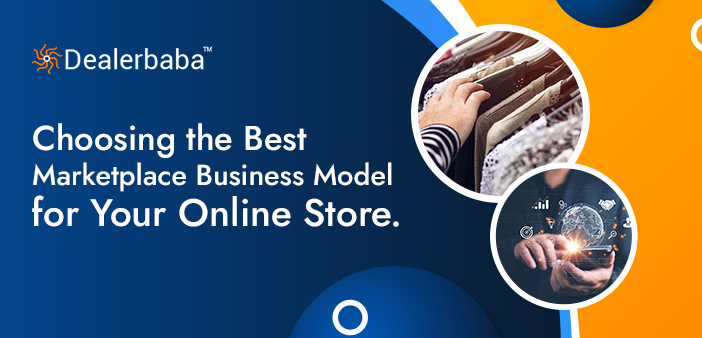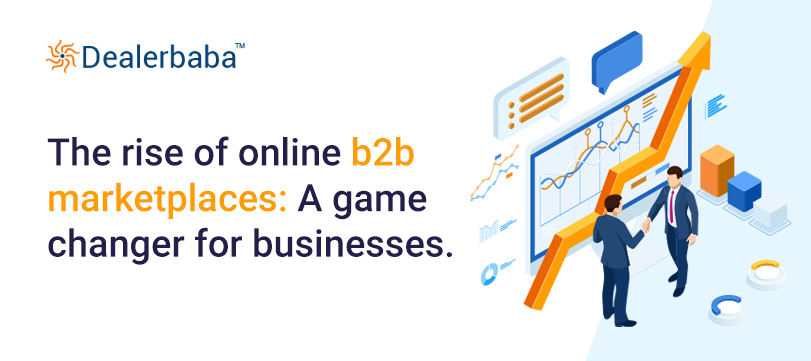-
Advertising / Agriculture / Apparel & Clothing
-
Architecture / Art & Craft / Automobiles
-
Bags & Shoes Accessories / Spare Parts / Books & Stationery
-
Business Services / Mobile Accessories / Computers & Laptops
-
Construction / Contractors & Freelancers / Education & Training
-
Electronics / Engineering / Environment
-
Event Planner / Fashion & Beauty / Financial
-
Gifts & Toys / Handicrafts / Health Care
-
Home Appliances / Hotel & Restaurants / Industrial Chemicals
-
Machinery Equipment / Information Technology / Jewelry
-
Kitchen / Instruments / Leather
-
Packaging / Personal / Plastic Products
-
Recruitment / Rental / Restaurants & Beverages
-
Security / Telecommunication / Tour & Travels
-
Transportation / Wooden Furniture
-
Сhoosing the Best Marketplace Business Model for Your Online Store
03 Feb 2023 /
One of the most crucial steps in launching a successful online store is settling on the Best Online Business Marketplace strategy. Your interactions with clients, your ability to turn a profit, and your choice of suppliers will all stem from your chosen model. The difference between making and losing money in online retail comes from selecting the right business plan. In this blog post, we'll examine the different online marketplaces and talk about the benefits and drawbacks of each.
Different Types of Online Business Marketplace
Consumer-to-Consumer (C2C), Business-to-Consumer (B2C), Business-to-Business (B2B), and Hybrid marketplaces are the several accessible Online Marketplace. Each has unique qualities and benefits, and you'll need to be familiar with them to pick the best one for your company.
The Pros and Cons of the Different Marketplace Models
1. Consumer-to-Consumer (C2C) Model:
- Pros: Due to the lack of a considerable inventory or costly supply chain requirement, C2C marketplaces are inexpensive to launch and keep running. Furthermore, because anyone can post an ad, they offer a diverse selection of goods. Individuals can generate money using C2C marketplaces by selling their products or services online.
- Cons: Quality control is typically an issue since anyone can sell on a C2C online marketplace. The market's credibility could be jeopardized due to problems with fake or faulty goods. Furthermore, it may be challenging to establish a solid brand in a C2C Online Business Marketplace because of the need for a governing body over the products.
2. Business-to-Consumer (B2C) Model:
- Pros: In business-to-consumer (B2C) marketplaces, sellers have more say over their products and services, leading to higher quality standards and stronger brands. Since they can get their goods and services from several vendors, business-to-consumer markets can provide customers with a diverse selection.
- Cons: Due to the need for inventory and supply chain management, B2C marketplaces typically demand more resources to launch and keep running. As a result of the abundance of similarly situated products and services, B2C marketplaces can be more cutthroat.
3. Business-to-Business (B2B) Model:
- Pros: To maximize profits on the online B2B Portal, businesses often cater to niches in the market for highly specialized goods and services. It's important to note that the revenue stream of business-to-business marketplaces is usually more stable than that of consumer-facing ones because of the prevalence of repeat customers.
- Cons: Scaling might be trickier for Online B2B Portal because they often rely on a smaller customer base for the bulk of their revenue. In addition, B2B marketplaces typically require specific skills or certifications to set up and maintain, which can add cost and time to the process.
4. Hybrid Model:
- Pros: With a hybrid Online Business Marketplace, you get the best of both worlds: a large selection of products and services without sacrificing quality control. It's important to note that Hybrid marketplaces have the potential to be more malleable and responsive to the needs of their users.
- Cons: Markets that include elements of several business types can take more work to administer. Furthermore, due to the need for a wide variety of resources and skills, Hybrid marketplaces might be more costly to launch and keep running.
Factors to Consider When Choosing a Marketplace Model
1. Type of products or services offered: The Best Online Business Marketplace will be depending on the goods and services sold.
2. Target audience and customer demographics: It will also be essential to consider the demographics of your target market and your customers when deciding on a business strategy.
3. Business goals and objectives: When deciding on an online marketplace model, it's crucial to keep your business's aims in mind.
4. Available resources and budget: The best market strategy depends on your goals and the financial constraints you face.
5. Legal and regulatory requirements: Each marketplace has its unique rules and regulations. When deciding on an online business model, keep these specifications in mind to ensure that you can meet them.
6. Scalability: The online marketplace model should be scalable, so you should consider your company's expansion objectives and choose one that can keep up with them.
Tips for Implementing and Optimizing Your Online Business Marketplace
Success in running an online business depends on your ability to effectively implement and optimize your marketplace model. Tips like knowing your value proposition, creating a memorable brand, optimizing your website, and satisfying customers should be considered. When defining your value proposition, highlight your market's unique selling points and customer benefits. An effective brand will set you apart from the competition and inspire loyalty from your clientele. Making your website as user-friendly and straightforward as possible is crucial if you want an uptick in traffic and sales. It is essential to provide outstanding customer service, to answer customer questions and concerns quickly, and to handle any problems that may develop. Moreover, your marketplace's performance should be reviewed and analyzed regularly, with any necessary tweaks implemented to keep things going smoothly.
Making the Right Choice: How to Select the Best Marketplace Business Model for Your Online Store
The fate of your online business rests heavily on your decision of which Business Model to implement. You may better achieve your business goals and objectives by carefully weighing the advantages and cons of the various marketplace models accessible. Keeping your online business running smoothly and successfully is possible if you follow the advice for establishing and improving your business marketplace model. Remember that your chosen business model is not immutable and can change as your company does. The trick is to keep one's eyes open and to adjust to the needs of the market and the clients. For Example, Understand the market as they evolve and then choose whether you need to switch to Online B2B Portal, B2C model, etc. By bearing all this in mind, you can lay the groundwork for a prosperous online business and launch a successful online store.
If you need any help or suggestion contact us at Dealerbaba. We at Delerbaba are here to help you in growing your business online.
Related Post
Explore Your Business Globaly By Listing On Dealerbaba
Add your business get multiple quotes
get multiple quotes
















Leave a Reply
Your email address will not be published. Required fields are marked *